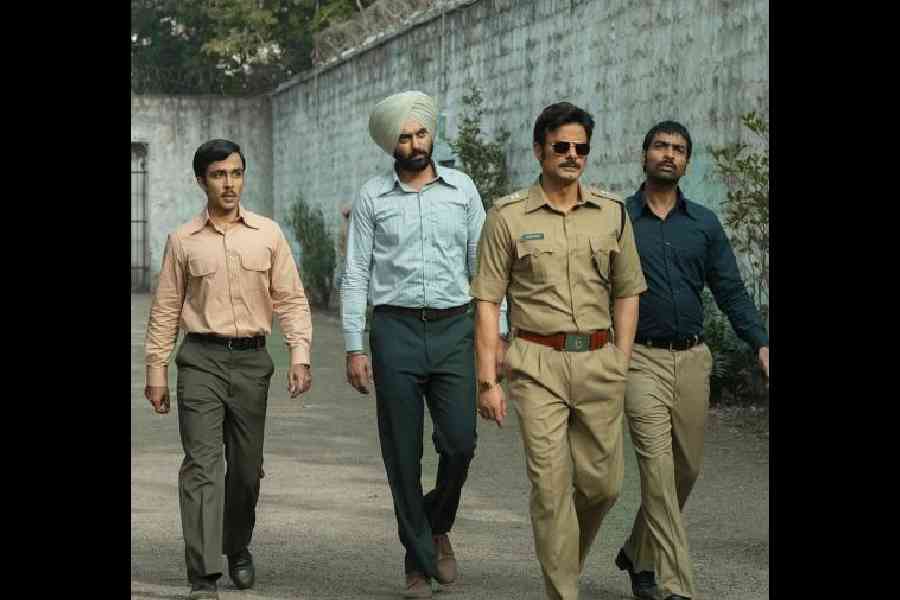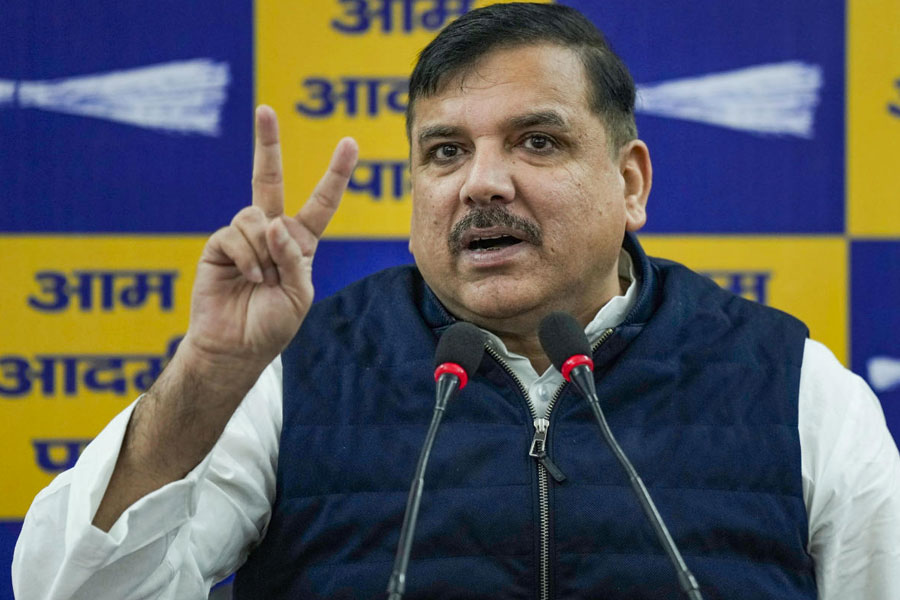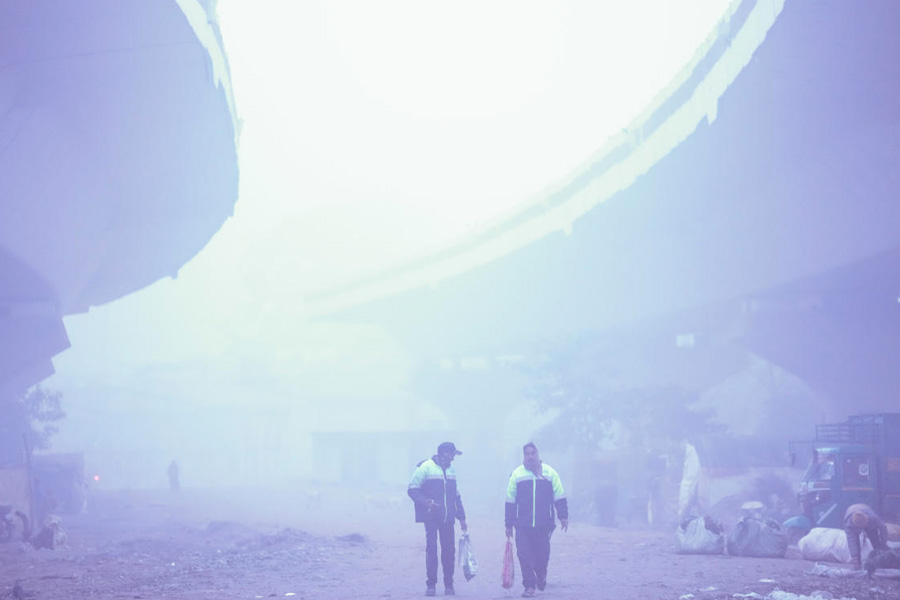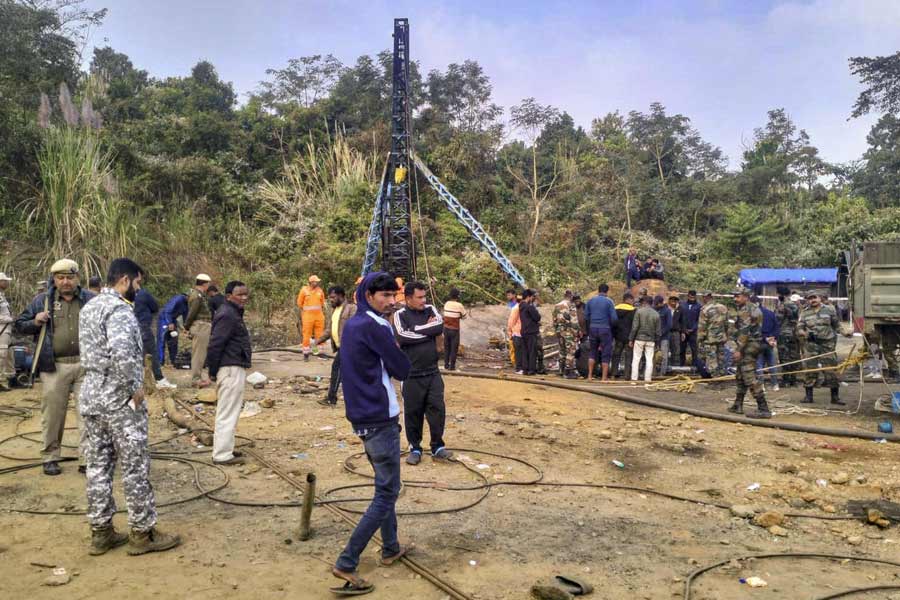A Vikramaditya Motwane film (or series) will always have one standout moment that stays on with the audience long after curtain call. In his debut film Udaan, it is the final moment of brothers Rohan and Arjun triumphantly walking hand-in-hand to their long-deserved freedom. In Trapped, it is Shaurya’s almost gleeful taandav-like dance when he burns down his mattress in a bid to attract attention in the apartment he finds himself locked in. In Lootera, it is the painfully poignant penultimate scene of Varun hanging an artificial leaf in the blinding blizzard so that Paakhi has reason to live, for at least a day more. In Jubilee, among many memorable moments, it is the unbridled sense of joy, reminiscent of Awaara, where Jay and Niloufer lose their umbrella in the pouring rain, but discover each other in the process. Each of these scenes represents freedom — or the journey towards it — in many ways. Each moment, as is the norm in a Motwane directorial, is simple on the surface but is loaded with meat and meaning.
There is one such scene in Black Warrant, the director’s latest web series. Except that it may not represent freedom in the conventional sense. It is an uncomfortable scene but is tinged with a certain catharsis that even while it makes the viewer uncomfortable, relays a sense of justice being done, freeing the mind in many ways. That is the scene in which real-life criminals Billa and Ranga are hanged.
Black Warrant, based on the 2019 book of the same name, takes us deep into the recesses of Tihar Jail. The setting is the early ’80s, an important time in India’s socio-political history. What plays out outside Tihar — the assassination of Indira Gandhi, the anti-Sikh riots, the repercussions of Emergency, the rise of the drug menace in Punjab, India winning the ’83 World Cup and even the entry of 2-minute noodles into the diet of India as a collective — ultimately affect what happens inside it.
Tihar is a microcosm of the world and yet is its own beast. The seven-episode series, now streaming on Netflix, describes it as one of the most “unforgiving” jails. Political powerplay, gang wars, corrupt administration, large-scale bribery and blatant flouting of rules... everything is par for the course in what is supposed to be a high-security prison, but in reality, isn’t.
It is here that a wet-behind-the-ears novice finds himself shoved into. Sunil Kumar Gupta, who gave 35 years of his life to Tihar as a jailer and on whose aforementioned memoir of sorts the series is based on, tells us this story. Except that this is not a bird’s-eye view but an insider’s perspective on the dangerous world of Tihar.
Gupta is played by Zahan Kapoor. Shashi Kapoor’s grandson is a fine actor — he already proved that in his debut film Faraaz, directed by Hansal Mehta — and in Black Warrant, Zahan turns in an incredible performance that effectively meshes awkward and uncomfortable with confidence and a tinge of street-smartness. It is an unlikely coming-of-age story.
Motwane, along with co-writer Satyanshu Singh, builds a world that is deeply dreary and yet intoxicating. While the story is told from Sunil’s perspective, none of the other players are shortchanged. Particularly effective is Rahul Bhat, a consistent award-worthy actor who plays Tomar, Sunil’s boss, with a compelling mix of unscrupulousness and vulnerability. As a viewer, you dislike Tomar for the most part, but ironically, you do understand him.
The layers of the so-called impenetrable fortress called Tihar are slowly peeled away for the viewer, sucking one right into the action. As Sunil’s character arc changes, Black Warrant becomes an even more intriguing watch. That intrigue is supplied further by Sidhant Gupta as Tihar’s MVP. Gupta, who played Jawaharlal Nehru a few weeks ago in SonyLIV’s Freedom at Midnight, not only gets Charles Sobhraj’s accent right, but also the dreaded conman-killer’s disturbing screen presence. The other players in this rich ensemble are fantastic — Parvinder Cheema and Anurag Thakur are both brutal yet beautiful as Sunil’s more seasoned contemporaries while Tota Roy Choudhury is solid as the top boss, with Joy Sengupta anchoring the part in the last few episodes.
The dynamics of prison life — dictated as much from outside as it is dominated from within it — makes Black Warrant an immediate clutter-breaker in a streaming era that is unfortunately being increasingly defined by cookie-cutter content. Motwane and his team also do a good job in making Black Warrant a straight-up commentary and not a shoved-down-the-throat social commentary. The more they let us into the world of Tihar, the more we get sucked in. The series ends on a high point with a daring prison break — if you know enough history, you will know who is the one that got away — and we can’t wait for Season 2.











